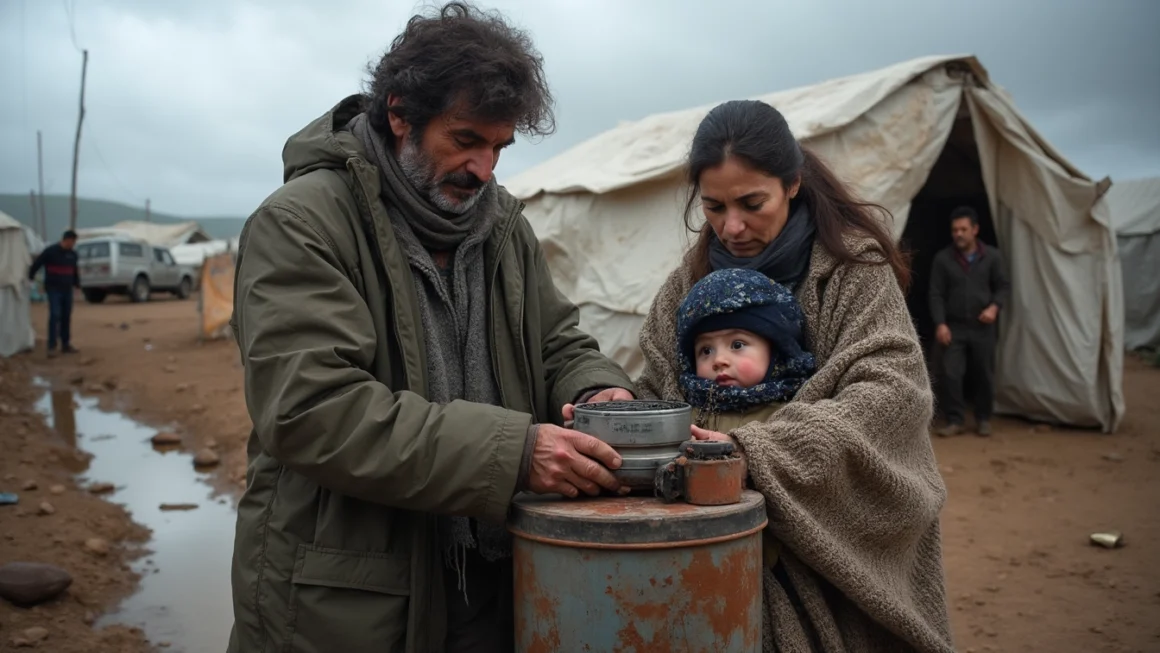Lebanon’s Displaced: Facing Winter Without Hope for Peace
Table of Contents
As the harsh winter months approach, displaced communities in Lebanon brace themselves against the imminent challenges, further exacerbated by dwindling hopes for a ceasefire. This article delves into the situation facing these communities, shedding light on the struggles and the resilience of the people affected.
The Plight of Lebanon’s Displaced Populations
Lebanon, a country that has long been a refuge for those fleeing conflict across the Middle East, now finds itself battling the repercussions of prolonged instability. Thousands of individuals, including refugees and internally displaced persons (IDPs), are confronted with deteriorating conditions as the region continues to grapple with persistent volatility.
Winters’ Threat: More Than Just Cold Weather
Subzero temperatures and heavy rainfall are common phenomena in Lebanon’s mountainous regions during winter. For those living in informal settlements or inadequately insulated shelters, these conditions pose grave dangers. Lacking sufficient heating, waterproof infrastructure, and access to basic necessities, many families find themselves in a daily struggle for survival.
- Insufficient heating results in heightened risk of hypothermia and illness.
- Poor shelter conditions exacerbate exposure to the cold and dampness.
- Adequate clothing and bedding remain scarce amidst economic hardships.
Hopes Dashed: Ceasefire Prospects Fade
Despite numerous diplomatic efforts, hopes for a stable ceasefire that could ease the burden on Lebanon’s displaced have largely faded. The ongoing geopolitical tensions continue to undermine peace initiatives, leaving affected communities in a state of uncertainty.
Impact on Humanitarian Aid
With peace prospects dimming, international aid organizations face significant operational challenges. The instability disrupts aid supply chains, making it difficult to deliver essential provisions and services to those most in need.
- Interrupted supply chains delay critical aid deliveries.
- Security concerns hinder the movement of humanitarian workers.
- Funding shortfalls affect the capacity to deliver necessary assistance.
Community Resilience Amidst Adversity
Despite these adversities, the resilience of Lebanon’s displaced communities is evident. Many people exhibit incredible strength and resourcefulness in organizing communal support systems to help each other endure. Collaborative efforts are often seen in shared shelter improvements and resource pooling to maximize limited supplies.
Innovations and Grassroots Solutions
Local initiatives have risen in importance, providing innovative solutions to everyday challenges faced by displaced communities. From makeshift heating devices to community-based educational programs, these grassroots efforts highlight the determination to overcome the odds.
- Creation of handmade heating units using readily available materials.
- Community-driven workshops and education initiatives for children.
- Shared community kitchens to ensure sustenance and solidarity.
Looking Towards Sustainable Solutions
Long-term solutions are imperative to support Lebanon’s displaced populations, ensuring both immediate relief and future stability. International attention and a strategic approach focused on sustainability can aid in rebuilding lives and fostering self-sufficiency.
In this context, exploring automation tools and innovative technologies can provide new avenues for efficient resource management and community empowerment. The contribution of technology in improving living conditions and creating resilient systems cannot be overstated.
Conclusion
As Lebanon’s displaced prepare for another winter without hope for a ceasefire, their circumstances are a call to action for the global community to intensify support and explore sustainable avenues for relief and rehabilitation. It is crucial to continue advocating for peace and stability in the region to allow these resilient communities to thrive.
Engage with this narrative and contribute to raising awareness about Lebanon’s displaced populations by sharing their story, supporting humanitarian efforts, and advocating for sustained peace initiatives in the region.




